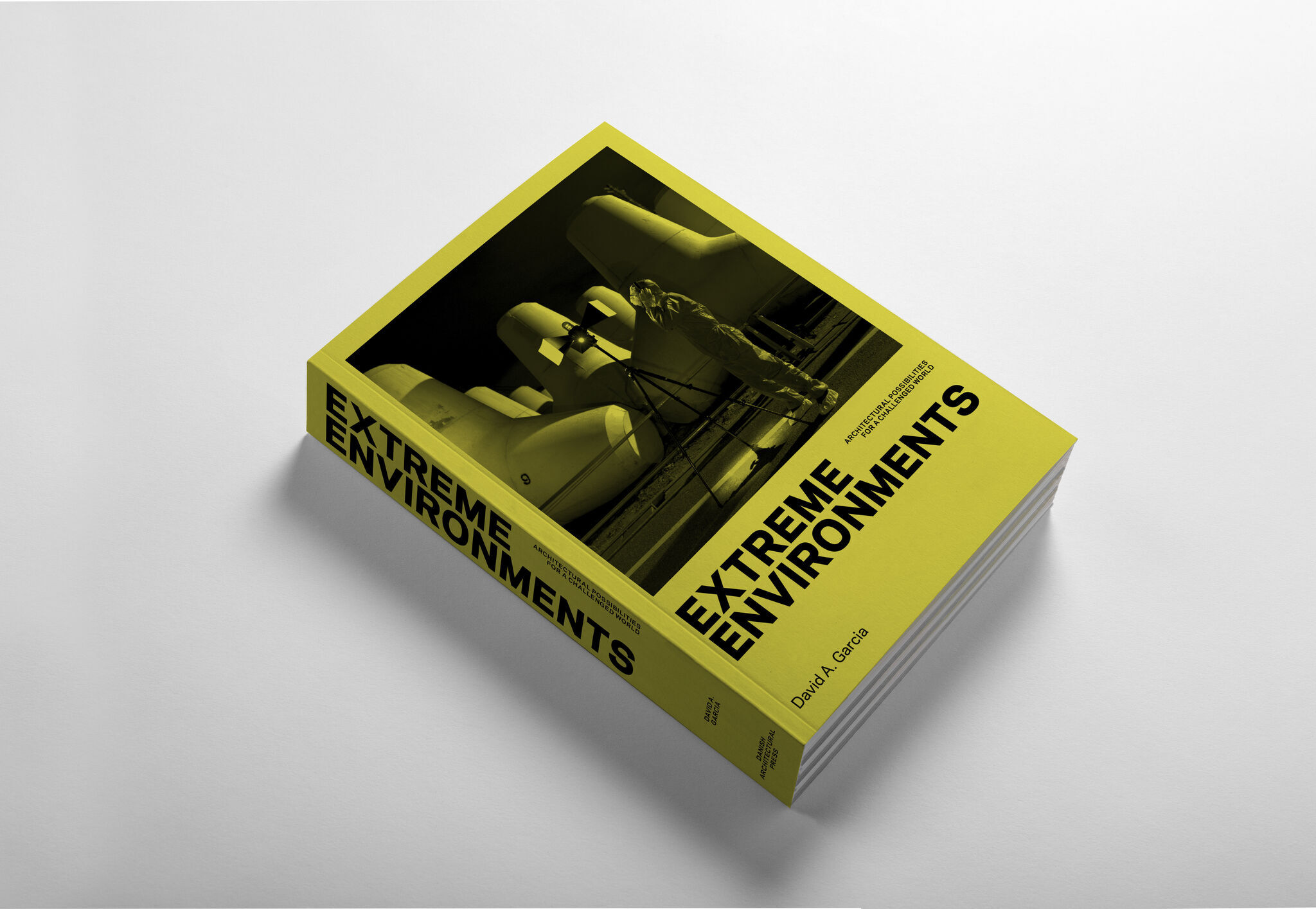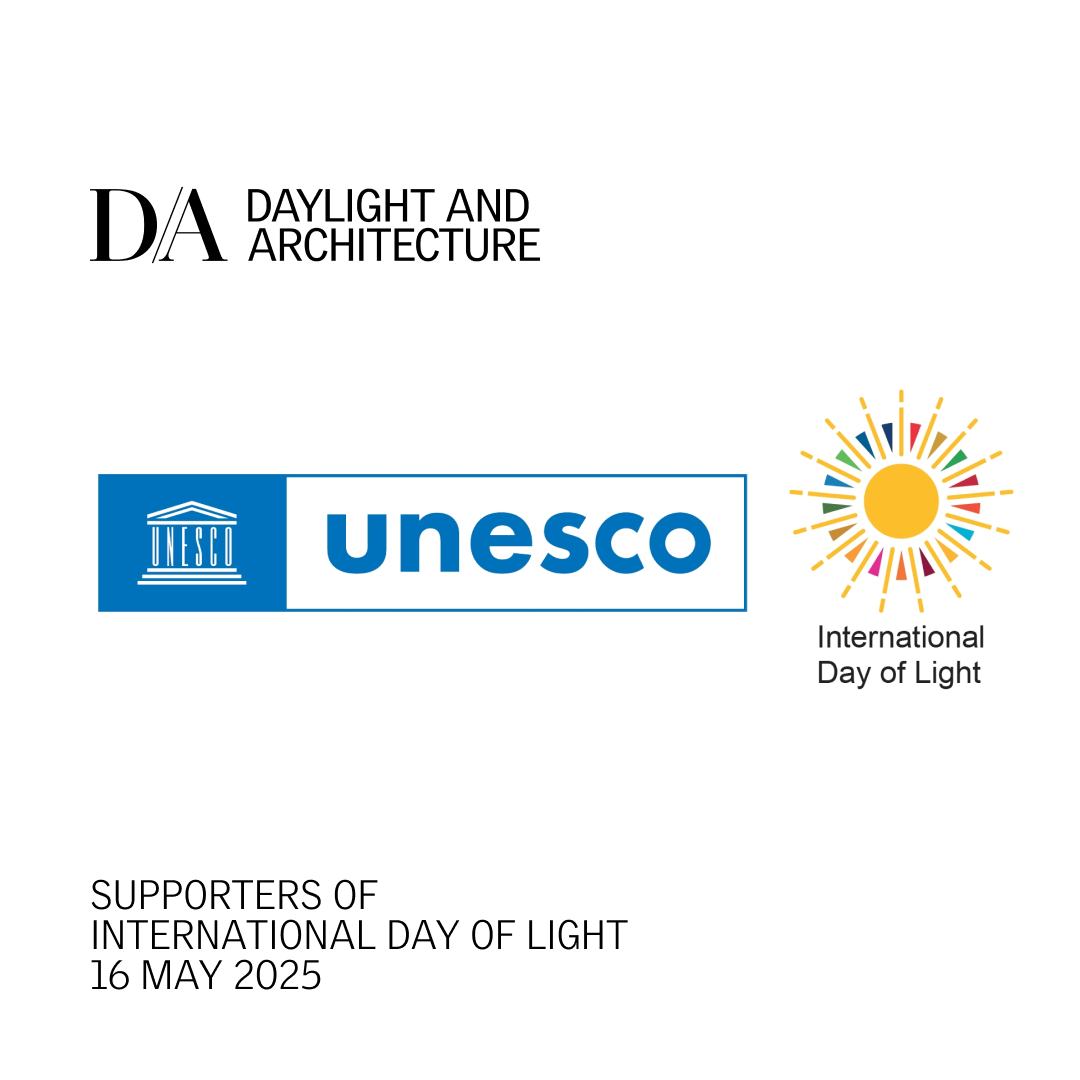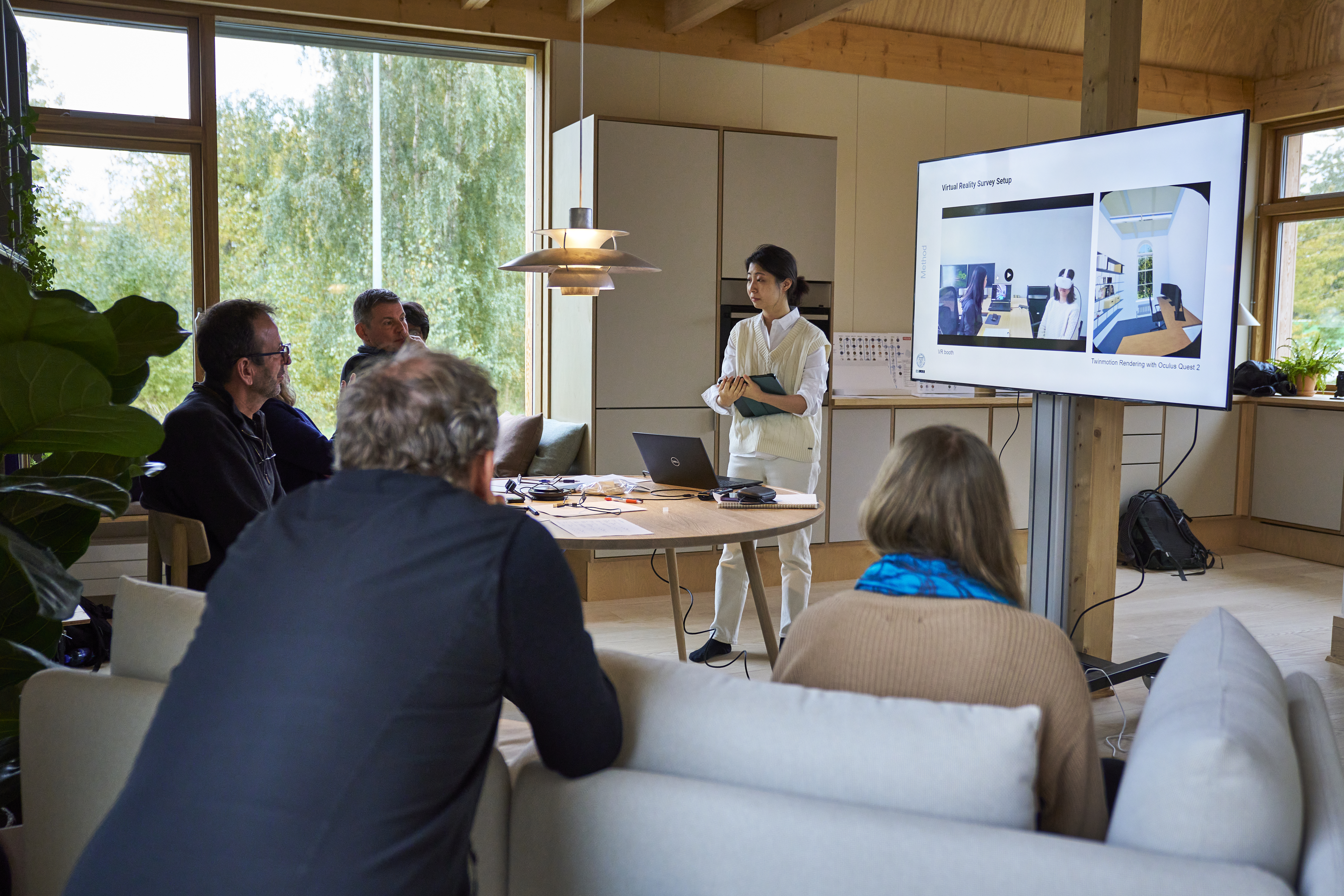The Global winners of International VELUX Award 2020 announced

Date
23 Jun 2021
Share
Copy
The VELUX Group is proud to announce that the projects Solar Desalination Skylight by Henry Glogau and The Theatre of Light by Julia Giżewska, Dominik Kowalski, and Paweł Białas are the global winners of the International VELUX Award 2020 for Students of Architecture.
The jury of internationally acclaimed architects selected the two global winners following online presentations by 10 regional winners at a live-stream event on June 23. The 10 finalists from 9 different countries around the globe were chosen among 579 daylight projects, submitted by students from 250 schools of architecture in 60 countries.
Since the regional winners of last year’s competition were announced in July 2020, they have been awaiting the chance to present their projects to the jury in the final round of the competition, which was scheduled to take place at The World Architecture Festival. Unfortunately, that festival was postponed twice due to the COVID-19 pandemic. Finally, the jury saw the online presentations from all 10 winners and had a chance to ask questions to the teams. Based on the presentations the following projects were selected as the global winners.
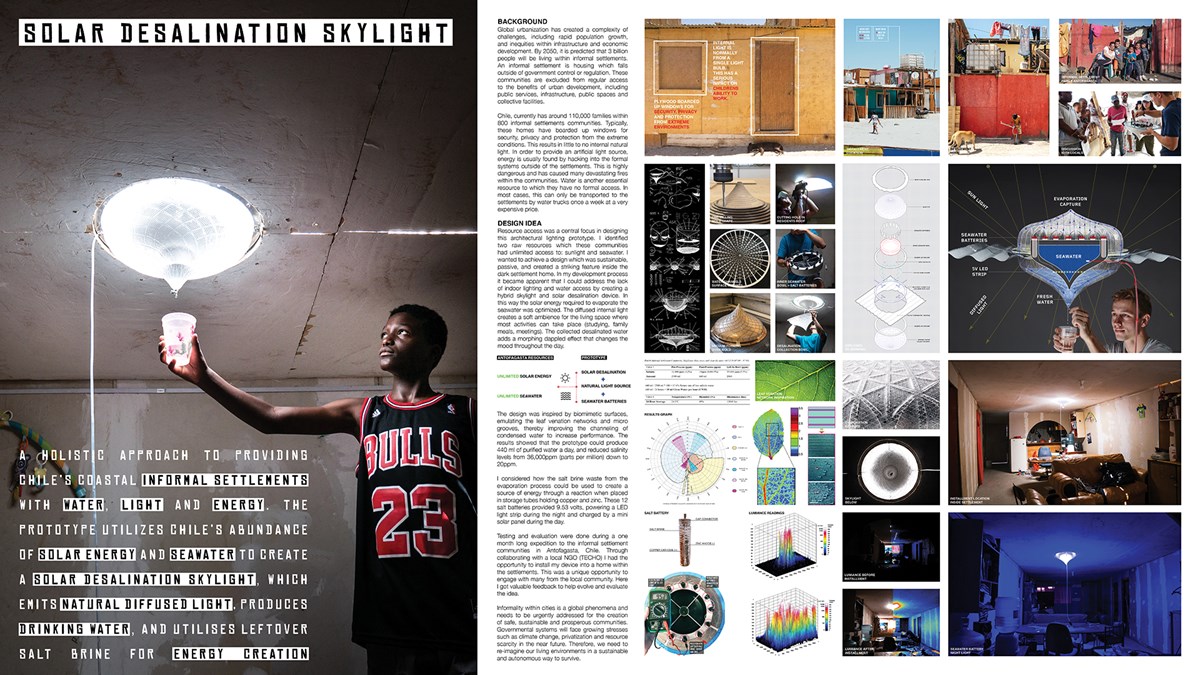
Global winner category Daylight in Buildings: Solar Desalination Skylight
Student: Henry Glogau
School: Royal Danish Academy of Fine Arts
Teacher: David Garcia
Country: Denmark
Region: Western Europe
This project works with a holistic approach to providing Chile’s informal coastal settlements with water, light, and energy. The prototype utilises Chile’s abundance of solar energy and seawater to create a solar desalination skylight, which emits natural diffused light to produce drinking water and utilise leftover salt brine for energy creation.
Resource access is a central focus in designing this architectural lighting prototype. These communities have unlimited access to sunlight and seawater. The diffused internal light creates a soft ambience for the living space and the collected desalinated water adds a morphing dappled effect that changes the mood throughout the day. The design is inspired by biomimetic surfaces, emulating the leaf venation networks and micro grooves, thereby improving the channelling of condensed water to increase performance.
The jury was impressed by the proposed solution to an important societal issue. The project offers a technical solution that seems very real and tangible and it answers an increasing global problem. This project is exemplary in the way it is presented with appealing graphics and very clear text.
The jury members were overall very impressed by the projects on many levels and the final decision was not an easy one. Still, the project Solar Desalination Skylight stood out. The author presented an impressive way of thinking through the design and the technology, showing sensitivity to the global problem that we all know exists and also how his solution can improve the quality of life on Earth
– says Nóra Demeter, chair of the jury.

It was so inspiring to see the presentation of the rest of the regional winners – each one of them could be the global winner.
Thank you to VELUX for organizing this competition and addressing one of the most important themes of architecture and design.
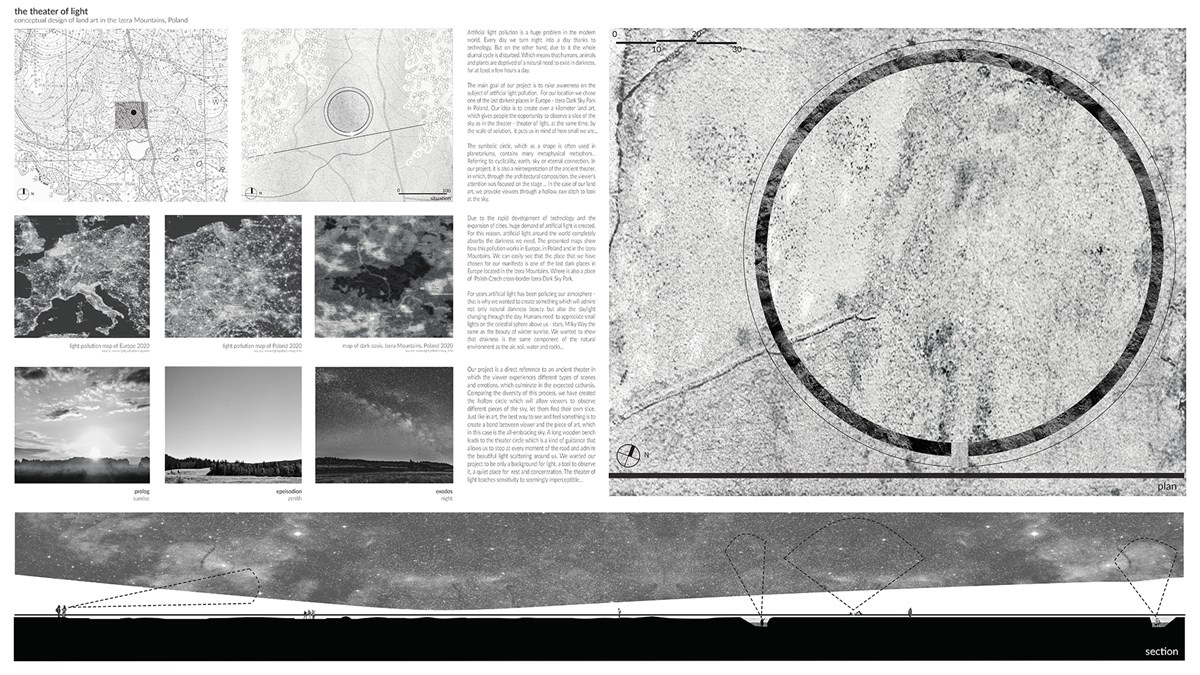
Students: Julia Giżewska, Dominik Kowalski, and Paweł Białas
School: Silesian University of Technology
Teacher: Jerzy Wojewódka
Country: Poland
Region: Eastern Europe & the Middle East
The main goal of the project is to raise awareness of artificial light pollution. Artificial light pollution is a huge problem in the modern world. We turn night into a day with technology; our whole diurnal cycle is disturbed as a result. Humans, animals, and plants are deprived of a natural need to exist in darkness when the sun is not in the sky.
The project location, Izera Dark Sky Park in Poland, features one of the last darkest places in Europe. The idea is to create over a kilometre of land art that gives people the opportunity to observe a slice of the sky as in a theatre – a theatre of light. The light art is shaped as a circle – a shape often used in planetariums – and symbolises cyclicality, the earth, sky, and eternal connection.
The jury found that the project sensitively investigated ‘a dialogue’ between natural light and nature and addressed today’s problem of not experiencing the dark night sky. The project is a convincing example that you do not need to make `big architecture´ to make a clear architectural statement. It is an elegant project and it is coherent in its graphics and text.
This project informed us about the value of our proximity to nature, which resonated strongly with us
– says Martin Pors Jepsen, member of the jury.

It is really important for us that you chose our minimalistic idea, this is a sign for us as students and humans that sometimes it is worth to create something that is slightly different, quiet, yet powerful by the meaning.
We hope that our message will help to raise awareness about light, dark and artificial light.

